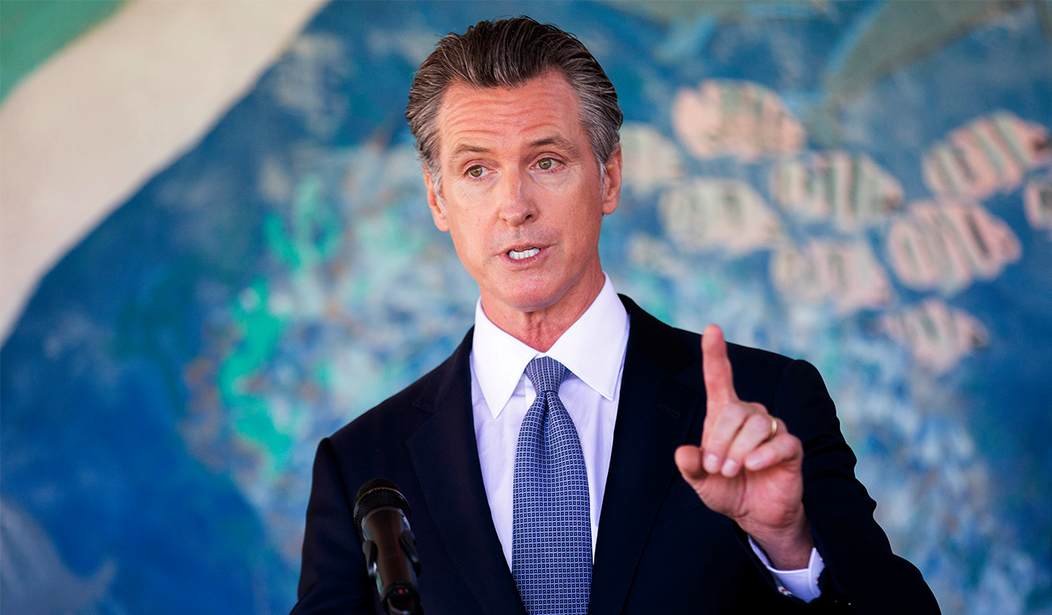(The opinions expressed in guest op-eds are those of the writer and do not necessarily represent the views of RedState.com.)
On August 25, the California Air Resources Board (CARB) voted unanimously to ban the sales of new internal-combustion vehicles in the Golden State by 2035 because of climate change, of course.
According to California Gov. Gavin Newsom, “We can solve this climate crisis if we focus on the big, bold steps necessary to cut pollution. California now has a groundbreaking, world-leading plan to achieve 100 percent zero-emission vehicle sales by 2035.”
So, in just 13 years, the most populous state in the Union has decided it will outlaw its citizens from purchasing new gasoline-powered vehicles. And more than a dozen other states have indicated they already have, or soon will, adopt regulations that will do the same.
This begs many questions, foremost among them: Do Americans desire electric vehicles (EVs)? The answer to that important query is a resounding no.
Per a recent survey by AAA, only “one-quarter of Americans say they would be likely to buy an electric vehicle (powered exclusively by electricity, i.e., not a hybrid) for their next auto purchase.”
As the AAA survey indicates, there are many reasons Americans remain reluctant about buying an EV, including “higher purchase price,” “concern there are not enough places to charge,” “concern about running out of charge when driving,” “unsuitable for long-distance travel,” “high cost of battery repair or replacement,” and “unable to install a charging station where they live.”
Aside from the fact that the vast majority of Americans remain hesitant, if not resistant, to purchasing an EV, it is also important to note that EVs are not as environmentally friendly as their advocates claim they are.
Unlike their gasoline-powered counterparts, EVs require a huge amount of rare earth minerals, specifically for the production of their batteries. As CNBC recently reported, “Producing electric vehicles leads to significantly more emissions than producing petrol cars. Depending on the country of production, that’s between 30% to 40% extra in production emissions, which is mostly from the battery production.”
Keep in mind, most of the mines that produce the rare earth minerals necessary to produce EV batteries exist in places like the Democratic Republic of Congo, which rely on child labor.
What’s more, charging EVs requires substantial amounts of electricity. According to Pew Charitable Trusts, “The average electric vehicle requires 30 kilowatt-hours to travel 100 miles — the same amount of electricity an average American home uses each day to run appliances, computers, lights and heating and air conditioning.”
Several states, especially California, are in the midst of transitioning their electric grids from fossil-fuel-based power sources to renewable energy power sources, which is already overburdening their systems and leading to rolling blackouts.
In fact, just days after California announced CARB’s new rule, the California Independent System Operator issued this alert:
“Consumers are urged to reduce energy use from 4-9 p.m. when the system is most stressed because demand for electricity remains high and there is less solar energy available. The top three conservation actions are to set thermostats to 78 degrees or higher, avoid using large appliances and charging electric vehicles, and turn off unnecessary lights. Lowering electricity use during that time will ease strain on the system, and prevent more drastic measures, including rotating power outages.”
If California’s electric grid is already on the verge of rolling power outages, which requires that residents refrain from charging their EVs during evening hours, how in the world could the grid handle a much larger share of the state’s residents charging EVs in the years to come?
Simply put, it cannot.
In recent years, California has become the locus of ill-considered progressive policies, which many states have unwisely followed. Unfortunately, California’s absurd decision to ban the sales of new gasoline-powered vehicles in just over a decade is quite possibly one of the most asinine policies conceivable. It will do little to combat so-called climate change, however, it will do lots of damage to hard-working Californians, who will have less agency, freedom of movement, and access to reliable and affordable energy.
Chris Talgo ([email protected]) is senior editor at The Heartland Institute.














Join the conversation as a VIP Member